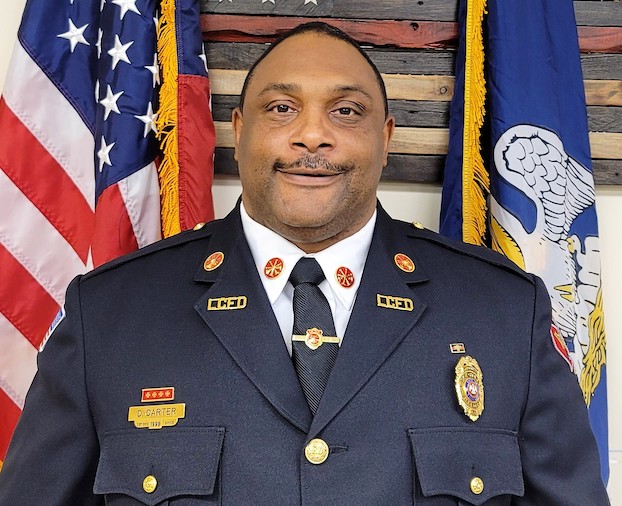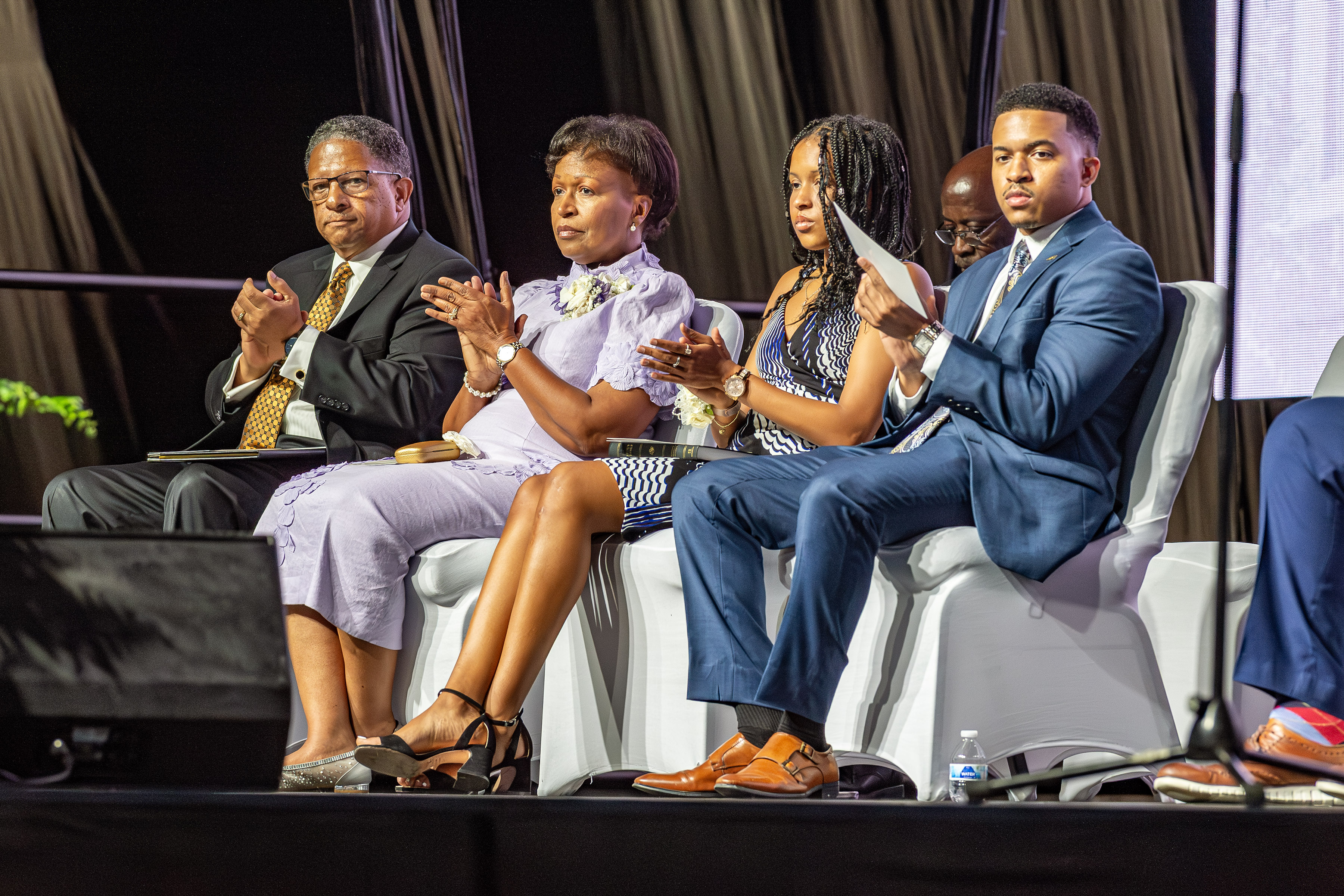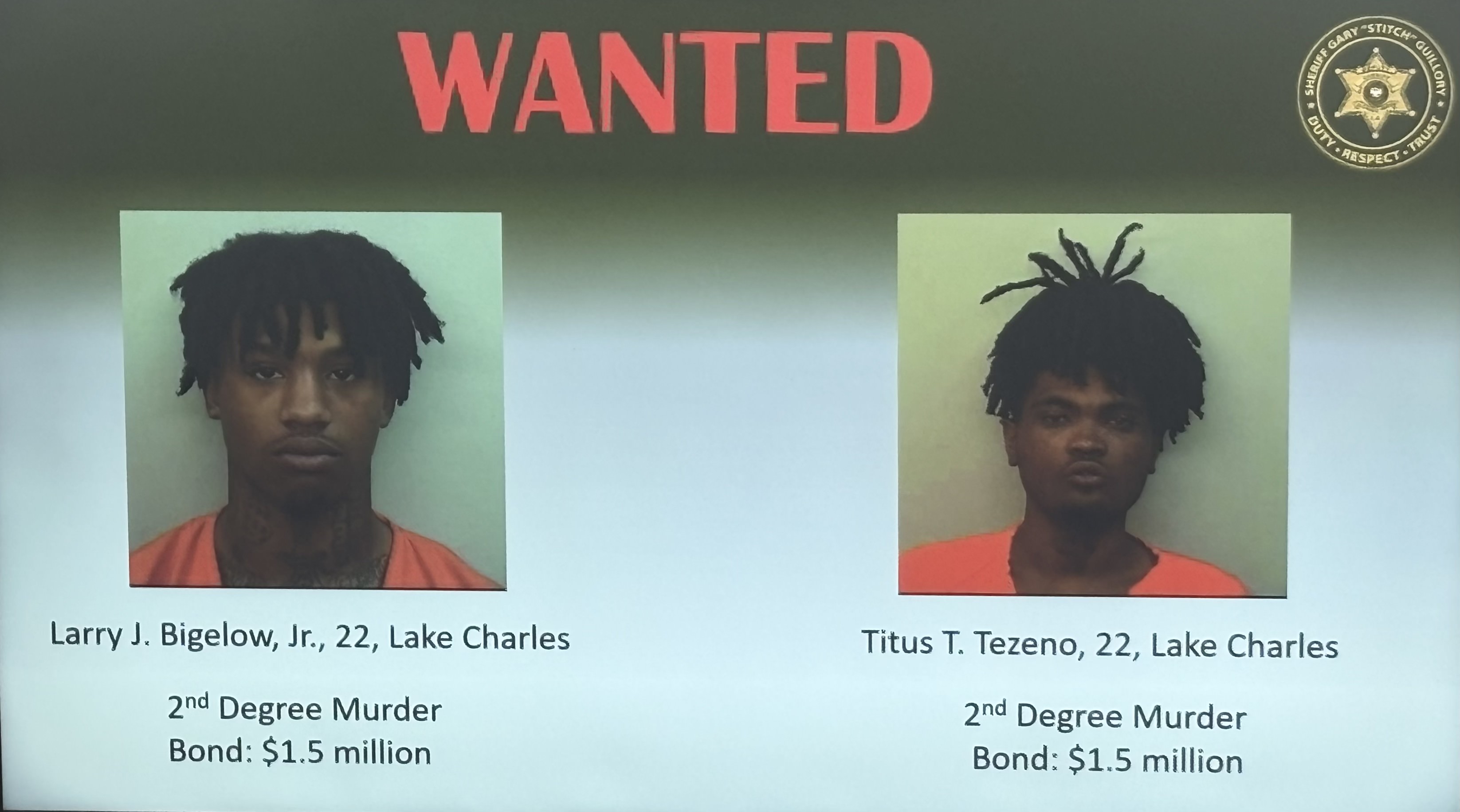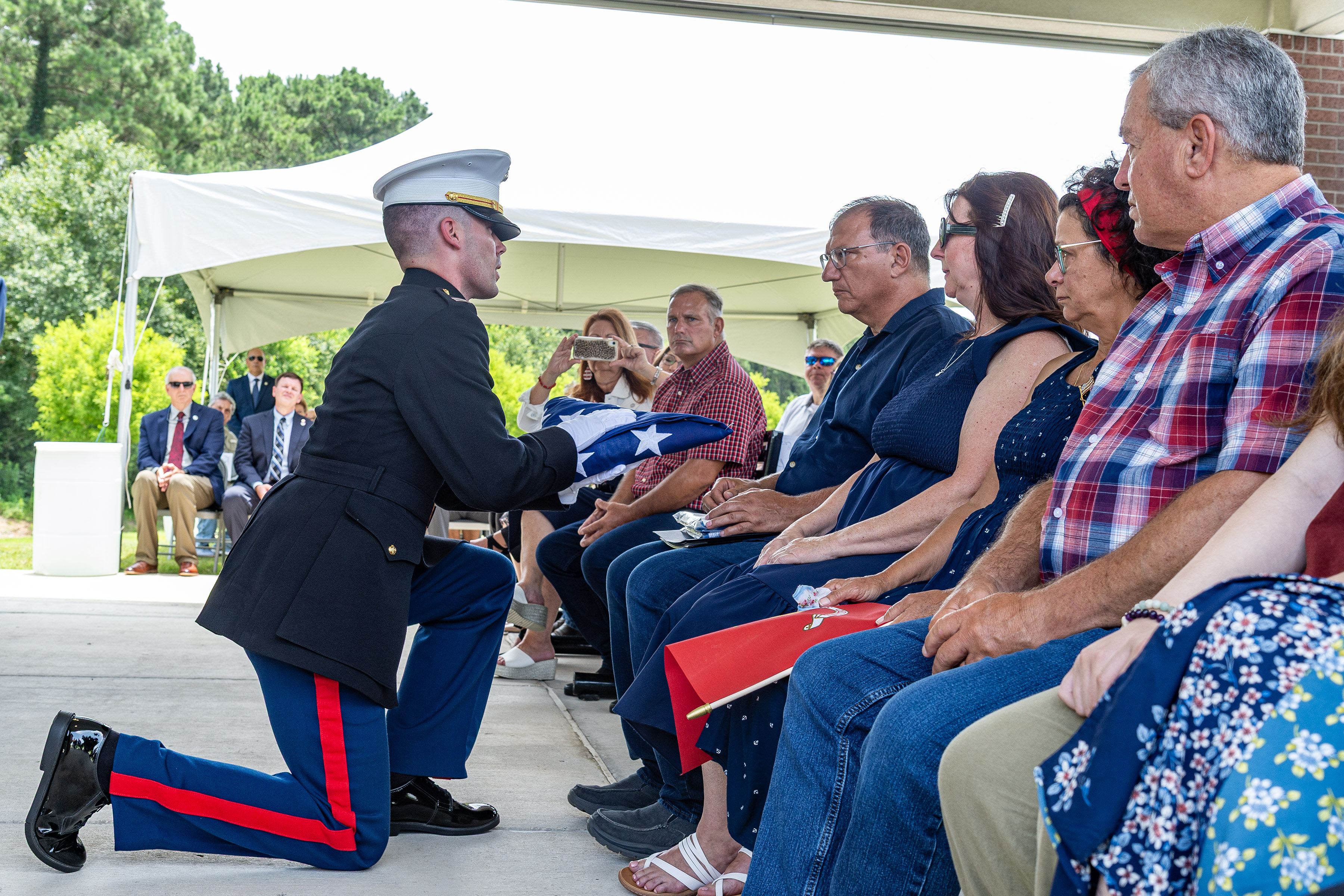Delton Carter LC’s newest fire chief
Published 5:51 am Friday, January 14, 2022

- The Lake Charles City Council has adopted a resolution in support of Mayor Nic Hunter’s appointment of Delton “DC” Carter to the position of Lake Charles Fire Department Chief. (Special to the American Press)
Delton Carter, the Lake Charles Fire Department’s newest chief, said he not only wants to help the department rebound from Hurricanes Laura and Delta; he wants to familiarize communities with their neighborhood firefighters and possibly inspire area youth to become one.
The City Council on Jan. 5 adopted a resolution supporting Lake Charles Mayor Nic Hunter’s appointment of Carter, 49, as fire chief. He replaced Keith Murray, who retired in November after more than 30 years of service to the department.
A lifelong resident of Lake Charles, Carter grew up in the Goosport area. He eventually finished his last years of high school at Lake Charles-Boston. He joined the Army during his senior year. He said the decision came from a combination of wanting to follow in the footsteps of his uncles who also served, not having a desire to attend college and not having much career direction. He met an Army recruiter, who showed him videos of various military jobs. One in particular grabbed his interest — the 19 Delta Cavalry Scout.
“It was like I was supposed to be there,” Carter said. “I told the recruiter, ‘You don’t have to show me any more videos. That’s what I want to do.’ ”
Carter graduated from Lake Charles-Boston High School in 1990 and immediately left for basic training. After completing basic training, he ended up at Fort Hood, Texas. It wasn’t long before he was sent overseas to Saudi Arabia, where he would spend nearly a year serving during the Gulf War. He returned to Fort Hood but eventually went back to Saudi Arabia. Carter also did tours in Germany and South Korea.
“I’ve been around the world, twice,” he said.
Carter said he was fortunate to keep the same job throughout his military career. As a Cavalry Scout, he said he basically was “the eyes and ears of the military.”
“Your entire career is basically just to be unseen, but you see everything else,” he said. “There has to be a human asset on the ground before special forces can move in. Even with new tech, someone has to go on the ground and say, ‘Point your satellite here.’ ”
Carter left the Army in 2000, but had a reserve obligation and served a year in the National Guard. He re-enlisted in the National Guard and served another two years.
Carter said he joined the Lake Charles Fire Department in 1999 around the time he was leaving the Army and starting his National Guard reserve service. Someone in Carter’s platoon who was a firefighter suggested he become one. He called Murray, then the Lake Charles Fire Department’s chief training officer, and asked to meet with him. Murray was impressed with Carter’s military background and told him to fill out an application and schedule an agility test.
The agility test was set to take place while Carter would be at Fort Polk for a two-week training session, so it was rescheduled. While at Fort Polk, he said he had an interesting encounter.
“I’m the truck commander, and my driver and gunner were doing training,” he said. “The driver said, ‘I signed up to be a firefighter,’ and the gunner said he had too and he talked to Murray. I looked at them like you’ve got to be joking. I said ‘I signed up, too,’ and we all came on at the same time.”
Aside from actually fighting fires, Carter said the job was in many ways similar to his experience as a Calvary Scout.
“When I joined the fire service, we would sit in the academy and say, this is stuff we do,” he said. “When they wanted to repel, rescue wise, this was not any different than us repelling out of a helicopter.”
Now in his early 30s, Carter said being a firefighter was physically demanding. He said he knew a lengthy career riding on the fire truck wasn’t in the cards. He left the fire department briefly, but once he returned, a new opportunity came his way.
“I was at a fire station south of town helping the training division,” he said. “The chief of training told me, ‘I like how you handled that. Do you want to be a training officer?’ I said, OK.”
Carter passed the test required to get into the fire department’s training division. Over the next three years, he received a number of certifications and attended an instructor class at Louisiana State University.
“Everything you train your guys on, you have to be certified,” he said. “I had to go back to an academy to teach at an academy.”
As a department training officer, Carter said he mostly taught people in their late teens and early 20s, a process that took 16 weeks at the time.
“If you talk to any firefighter, I’ve probably trained them,” he said. “You’re taking this mold and you’re making a firefighter. That’s what made it more important to me, because nobody said that our job isn’t dangerous. It’s physically and mentally demanding, and it’s all thankless.”
While in the training division, Carter said the qualifications evolved. To attend classes at the National Fire Academy in Maryland, a bachelor’s degree was required. Once Murray became fire chief in 2013, Carter enrolled in Columbia Southern University in Alabama. He first got an associate’s degree in fire science, then his bachelor’s degree in fire administration online, all while continuing to teach at the fire academy.
“It wasn’t easy, but I knew I needed to do it,” he said.
Once talk of Murray’s possible retirement began around 2018, Carter started considering getting a master’s degree. He got his degree in human resources management from Columbia Southern in 2021.
“I needed to separate myself from the pack,” he said.
Carter was promoted as the fire department’s chief training officer last March before becoming department chief.
Carter said he wants to be an advocate for firefighters and for improving conditions at fire stations. He said all the FEMA paperwork related to the damage caused by Hurricanes Laura and Delta has been filed.
“It’s just getting the work done, getting the products that we need, getting the people to do it,” he said. “My goal is to get the departments into the future and build them up to where they are a little more hurricane-proof. Again, it’s a slow process.”
Despite his world travels, Carter said he has never thought of anywhere else as home except Lake Charles.
“Even though the people change and the city is growing, it’s moving at a pace that’s familiar,” he said.
Carter said he wants to instill more pride in the department. He said pride stands for professionalism, responsibility, integrity, determination and educational excellence.
“I have a vision of what I think we need to do,” he said. “If we carry that throughout our department, we can bring more people in here that are going to love what we do.”





